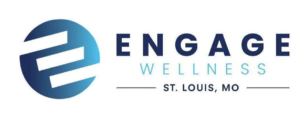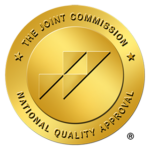Home / What We Treat /
Home / What We Treat / Benzodiazepine Addiction and Benzo Rehab in St. Louis
Benzodiazepines, or benzos, are a class of central nervous system (CNS) depressant drugs that slow the activity in the brain and nervous system. They’re used to treat anxiety, insomnia, and some types of seizures, but they can be addictive if they’re used long-term, taken in high doses, or misused.
What Are Benzodiazepines?
Benzos are a class of prescription medications that are known as sedatives or anxiolytics. They are CNS depressants and used to treat conditions like anxiety disorder or panic disorder, as well as muscle spasms, insomnia, seizures, and anxiety.
Though benzos are often prescribed for these conditions, it does have the potential for addiction. Benzos are classified as a Schedule IV controlled substance that’s only available with a prescription, but there is an illicit market for recreational use.
Benzodiazepines are typically prescribed as a pill taken by mouth, though there are intravenous benzos that are used in hospitals. Some people may misuse benzos by crushing them to smoke, snort, or inject. With recreational use, some people may take benzos to boost the euphoria from heroin and other opioids or use benzos to ease the comedown from stimulants like cocaine or meth.
Benzodiazepines Addiction and Abuse
Benzos are generally safe when taken as directed by a doctor, but they have the potential for misuse, abuse, and addiction. These drugs are commonly abused because of the effects they produce and their widespread availability.
Regular benzo use can lead to dependence, even when taken as prescribed.[1] Misusing benzos by taking them at higher doses than prescribed, more frequently than prescribed, or for purposes other than prescribed, such as crushing pills to snort or inject, increases the risk of addiction. Benzodiazepines are intended to be taken at the lowest dose for the shortest period of time possible.
If dependence occurs, the body becomes used to the presence of the drug and needs it to function. If the dose is reduced or stopped, withdrawal can occur. Benzodiazepine withdrawal can have serious and potentially life-threatening symptoms like seizures, so you should never stop taking them cold turkey.[2] Doctors can recommend a taper schedule to gradually reduce the dose and minimize withdrawal symptoms.
Benzodiazepine addiction is classified as a sedative, hypnotic, or anxiolytic use disorder in the Diagnostic and Statistical Manual of Mental Health (DSM-5). The criteria include:[3]

List of Common Benzodiazepines
There are several benzodiazepines that are commonly described, including:[4]
Statistics for Benzodiazepine Use and Addiction
According to a cross-sectional analysis from the National Survey on Drug Use and Health Data from 2015-2016, a total of 30.6 million adults (12.6%) reported past-year benzodiazepine use, and about 25.3 million (10.4%) took benzos as prescribed, and 5.3 million (2.2%) reported misuse.[5] Benzo misuse accounts for 17.2% of overall use.[6]
In addition, misuse and abuse or dependence on prescription opioids or stimulants were strongly associated with benzodiazepine misuse.[7] The most common type of misuse was without a prescription, but older adults were more likely to use benzos more often than prescribed or for other reasons than intended, such as helping with sleep.[8]

Benzodiazepine Addiction Treatment in St. Louis
Overcoming benzodiazepine addiction can be especially difficult because of physical dependence and intense and potentially life-threatening withdrawal symptoms. At Engage Wellness, we take a comprehensive approach to benzodiazepine addiction treatment that addresses the emotional, psychological, and social factors that contribute to substance use.
Detox placement is often the first step to manage withdrawal symptoms safely and prevent medical complications. Benzodiazepine withdrawal can include anxiety, insomnia, tremors, and seizures, so medical support is necessary for safety and comfort.
Once detox is complete and your condition is stable, you can continue with a structured addiction treatment program at a treatment center to address the psychological aspects of substance abuse. Engage Wellness offers intensive outpatient programs (IOP) for benzodiazepine addiction with multiple intensive therapy sessions each week without requiring an inpatient stay. We also offer outpatient treatment options if you need more flexibility to manage your recovery alongside daily responsibilities.
Your individualized care plan may include a combination of these evidence-based therapies and supportive services:
01
Helps address relationship challenges and creates a supportive recovery environment by involving loved ones in the process.
02
Provides a safe space to connect with peers, share experiences, and develop healthy coping strategies.
03
Based on the principles of programs like Alcoholics Anonymous (AA), 12-Step groups foster accountability, self-reflection, and connection through recovery.
04
CBT helps you recognize and change the thought patterns that contribute to drug abuse and develop healthier habits.
05
Builds emotional regulation, mindfulness, and distress tolerance to deal with anxiety or addiction.
06
A collaborative approach that helps to increase your internal motivation for making meaningful changes.
07
EMDR is helpful to address trauma or past experiences that contribute to substance use.
08
Teaches practical techniques to manage stress, identify triggers, and maintain long-term sobriety.
09
Includes integrative options like meditation and yoga to promote overall wellness and balance.
10
Designed to address the unique needs of military veterans, including co-occurring PTSD and substance use.



